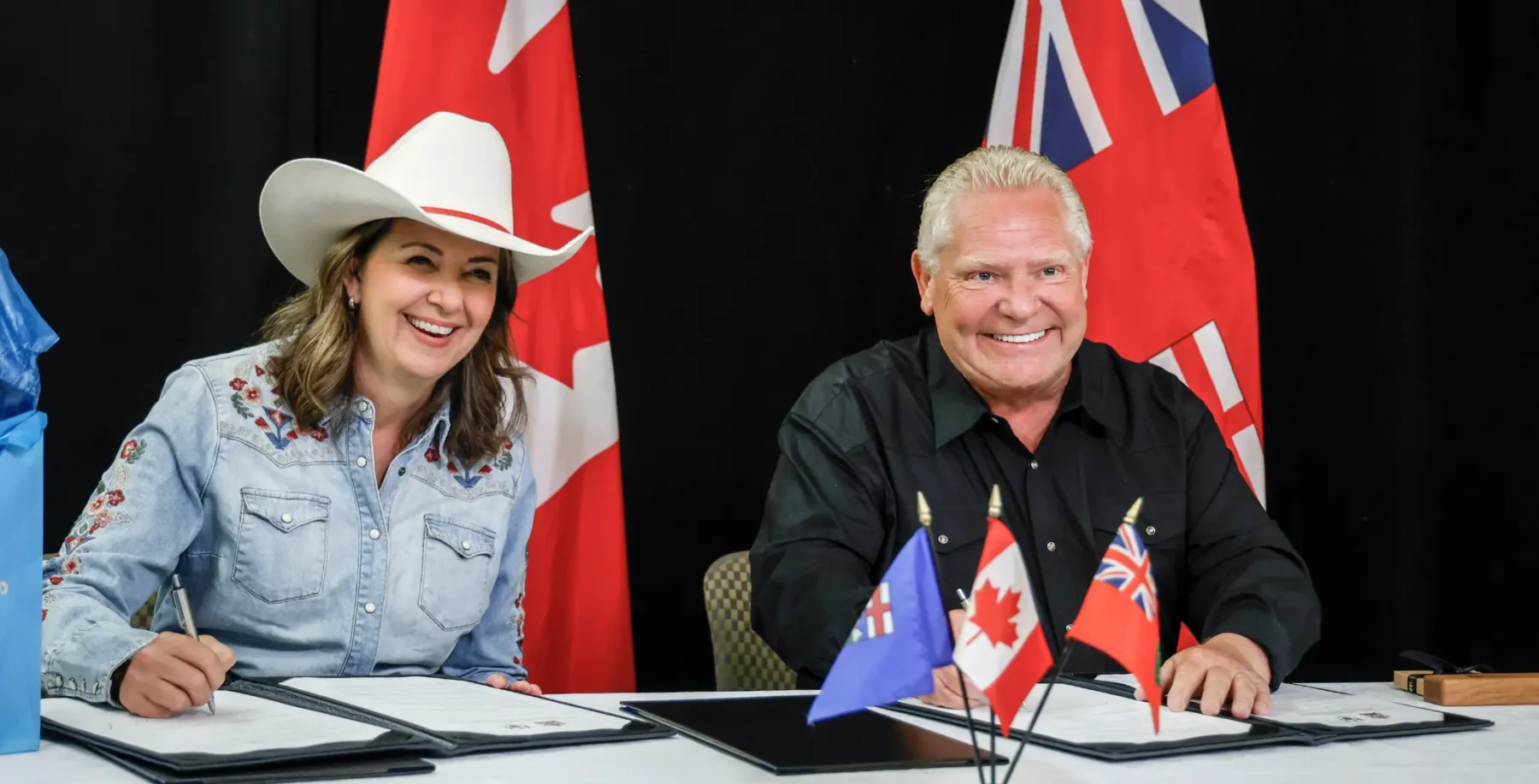
Rating: NNNNN
Some of my best friends are anti-Americans. But Canadian politicians who pander to anti-Americanism are simply grandstanding in order to avoid leading us toward a self- and nature-respecting pro-Canadianism.
These days, Prime Minister Paul Martin is sounding pretty feisty, almost a northern, Anglo version of Venezuela’s Hugo Chavez, when he takes on some of the decisions and indecisions of U.S. prez George W. Bush.
It seemed like a long way to go to hold a media conference for Canadian journalists, but Martin chose the Economic Club of New York as the backdrop for a dramatic speech October 6. You can bet his talk would’ve gone unnoticed or been treated as empty posturing if it’d been delivered in Canada.
In the lions’ den, Martin slammed U.S. limits to imports of low-cost Canadian softwood lumber as “nonsense” and a clear-cut violation of the North American Free Trade Agreement (NAFTA). Then he hinted at retaliation, suggesting that Canada’s oil could be sold to a Big Daddy in China instead of in the U.S.
This is classic self-sabotage, commonly masked as an empty threat. Aside from the fact that U.S. corporations own most of the oil in Canada, and the Alberta provincial government, not the federal government of Canada, decides how its resources will be used, Martin will have to take a very slow boat to China.
Article 605a, right there in black-and-white in the very NAFTA that Martin wants upheld for lumber sales, dictates that Canada can’t decide on its own to reduce the proportion of gas and oil it exports to the U.S. The proportion of sales going to the U.S. has to follow historic patterns, so any threat to do otherwise only plays to the peanut gallery.
Martin’s New York speech also criticized Bush’s determination to drill for oil in the Arctic wilderness of Alaska, where both the caribou and aboriginal bands dependent on them are jeopardized by heavy industry. Cynics might well argue that this apparent statement of principle favouring ecological and human rights is actually more a call of the wily than a call of the wild.
A case could be made that the Canadian government simply hopes all the tens of billions of dollars in infrastructure investments for exploration and pipelines will stay in Canada’s far north, not Alaska’s. Those pipelines- think Mackenzie Valley – are crucial for cheap gas that can boil filthy tar sands in Alberta and convert them through a filthy and energy-wasting process into something that can be used as oil and gasoline.
I fear the cynics might be right. Canada’s position in opposition to rampant exploitation of gas and oil resources in Alaska is simply the flip side of its position in favour of rampant development of gas and oil resources in the Canadian far north and in favour of rampant exploitation of British Columbia, Ontario and Quebec forests for cheap softwood lumber.
It disturbs me that any Canadians, let alone the almost unanimous mass of Canadians, are so lacking in self-confidence and respect for their ecological habitat as to consider Martin’s arguments anything but victim-position politicking.
Let’s start with the softwood lumber issue. U.S. timber interests succeeded in imposing $5 billion in levies against Canadian lumber exporters. A succession of NAFTA tribunals, as well as the editorial board of the Wall Street Journal, have concluded that these punishing levies against Canadian imports are violations of NAFTA. Even former president Bill Clinton can see the point in Canadian complaints about the failure to uphold the NAFTA deal.
It’s worrisome that such endorsements of the Canadian export of unprocessed cheap lumber should be a matter of pride rather than humiliation in Canada. NAFTA was in large part about locking Canada and its raw resources into economic colonialism in the first place. So why would we expect NAFTA tribunals, the Wall Street Journal or former president Bill Clinton to favour rogue U.S. lumber companies who threaten this colonial relationship?
Throughout the 1990s, former University of Toronto business professor Jack Mintz, now head of the C.D. Howe Institute, prepared a series of detailed studies showing that Canada’s logging and lumber industry were at the top of the taxpayer subsidy feeding chain.
When all the public expenditures for workplace accidents (logging comes out tops for that), road construction, replanting and unemployment insurance for seasonal layoffs were added up, the industry cost taxpayers more than it produced.
So the rogue lumbering Yanks are saying what Canadians should have been saying: Canada shouldn’t be selling our lumber so cheaply.
In this age of talking about adding value to raw resources, Canada should use its precious forests sparingly, by creating jobs in the manufacturing sector, making furniture, boats and musical instruments instead of wholesaling plain lumber and shingles.
And the forests should be used sparingly because they’re worth more alive than dead. This is contrary to Canada’s system of measuring the GNP, which classifies forests, including forests saved for later development when lumber prices are higher, as having no economic or investment value. Such a valuation of a standing forest is only possible in a colony that sees its assets as worthless unless purchased by outsiders.
To threaten a search for more embracing masters in China, one of the world’s most brutal dictatorships and ruthless exploiters of cheap labour, is bravado that masks an inability to conceive any future without a master.
It also betrays a lack of personal dignity and of respect for the planet to demean the cause of First Nations people and the charismatic wild species of Alaska by turning their fate into a tit-for-tat in a trade dispute.
news@nowtoronto.com












